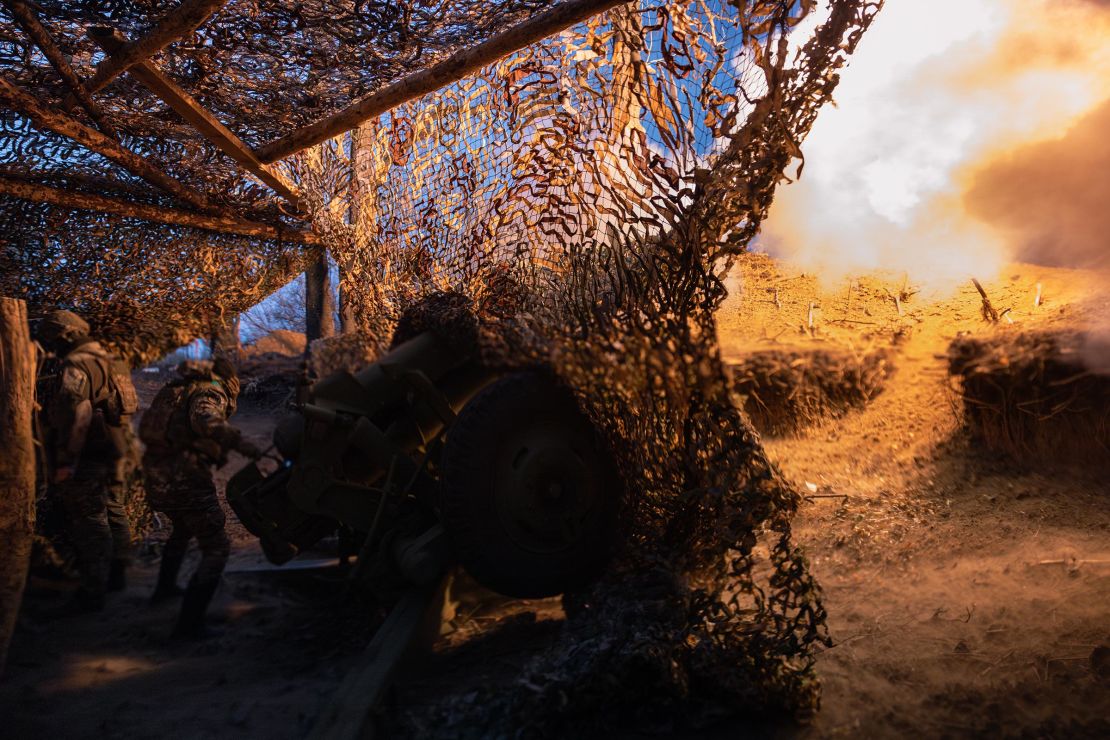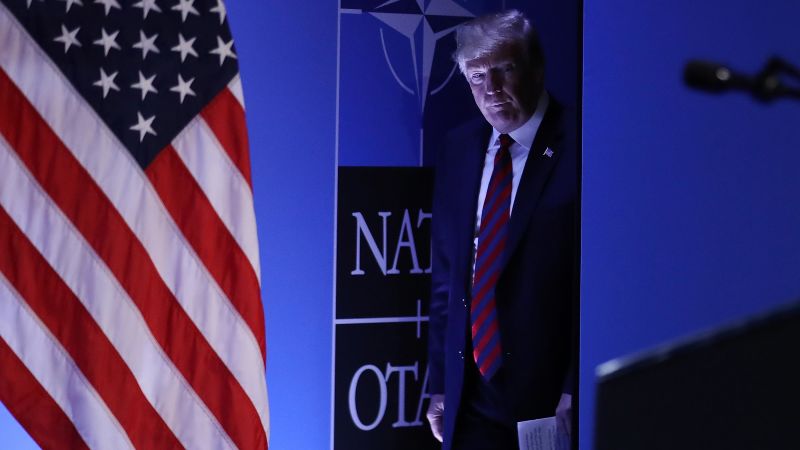CNN
—
Within minutes of President-elect Donald Trump’s announcement of Fox News host and Army veteran Pete Hegseth as his selection for secretary of Defense, current and former senior military commanders began messaging and calling me with their reactions. “Ridiculous,” said one. “An effing (euphemism inserted) nightmare,” said another. To be clear, these were not partisans, but senior commanders who have served under both Presidents Trump and Joe Biden.
Their critiques, as they continued, were not personal. None had anything negative to say about Hegseth. Their central concern is that they see Trump, with this and other senior national security appointments, building out a team to put into action massive and lasting changes to US foreign policy.
“There’s no serious experience in the business of running the Pentagon or the national security staff processes, but I’m trying to retain an open mind and hope that fresh ideas could improve things that get pretty stale,” a retired four-star general told me. “That said, the common denominator is clearly loyalty and while some loyalty is essential, slavish fealty is dangerous. Looking at all the announcements to date, we could end up with one mind controlling many hands. And I’ve never believed that one mind, any mind, does that as well as diversity of thought.”
The 2024 election – unlike previous ones with differences at the margins – may prove to have an enormous impact not just on US foreign policy but on America’s role in the world. Trump has repeatedly expressed that he’s ready to deliver on his “America First” agenda, ending US entanglements abroad and diminishing or altering treaty relationships he sees as skewed against American interests, each a departure from what used to be a bipartisan worldview. To that point, Hegseth has from his perch at Fox News long been a vocal, public proponent of Trump’s “America First” agenda.
Geraldo Rivera praises ex-Fox News colleague on becoming Trump’s choice for defense secretary
Trump, as in domestic politics, has demonstrated a transactional view of US relations abroad – and one that often fails to differentiate based on values or shared history. He’s repeatedly communicated that he sees the US as no better or worse than its adversaries. There is a common thread between Trump’s answer to Bill O’Reilly in 2017 when the then-Fox News host reminded him, “Putin is a killer”, to which Trump answered, “You think we’re so innocent?” and his comment at a rally in Michigan during the last week of the 2024 campaign that “In many cases, our allies are worse than our so-called enemies.”
With this view of America’s relationships with allies and adversaries, Trump seems to believe that as president he will be just as able to make mutually beneficial agreements for the US with, say, Russia or China, as with US allies in Europe and Asia – that is, with nations that have fought alongside the US and signed mutual defense treaties.
Negotiations with Moscow or Beijing are certainly better than a super-power war, but this approach neglects that those adversaries see it as in their strategic interests to weaken the US and the US-led global order – objectives made clearer as Russia and China increasingly join forces with North Korea and Iran across the globe, from the battlefields of Ukraine to the sharing of nuclear and missile technology, to new agreements such as the mutual defense treaty signed recently between Pyongyang and Moscow.
Can Trump make a great deal that would push China and Russia, and North Korea and Iran, to abandon or temper those strategic interests? Theoretically, I suppose that’s possible, though former British Prime Minister Lord Palmerston – who famously said only interests, not allies, are “eternal and perpetual” – would beg to differ.

China shows off military as Putin touts a ‘new world order’
So what would this mean for US foreign policy in the near term? Trump’s former senior advisers told me in my recent book, “The Return of Great Powers” that, with this established worldview, Trump would end aid to Ukraine to defend itself against Russia.
“If I were Ukraine, I’d be very worried,” Trump’s former national security adviser John Bolton told me, “because if everything is a deal, then what’s another 10% of Ukrainian territory if it brings peace, kind of thing?”

They told me Taiwan should be similarly concerned. While Biden vowed publicly multiple times to defend Taiwan militarily against a Chinese invasion – ending a decades-old US policy of strategic ambiguity toward the self-governing island – none of Trump’s former senior advisers told me they believe Trump would do the same.
US defense treaties are similarly on the table. Several of his advisers said he might attempt to exit NATO (as they witnessed him attempt to do briefly in his first term) or, if thwarted by new legislation passed by Congress making such a unilateral withdrawal harder, signal that he, as commander in chief, would not abide by NATO’s Article 5 committing members to defend other members militarily. In their view, his line in February that Russia could “do whatever the hell they want” to NATO countries that don’t pay up was meaningful.
“I think NATO would be in real jeopardy,” Bolton told me before the election. “I think he would try to get out.”
This raises questions about Trump’s commitment to other alliances around the world, including those in Asia with South Korea and Japan. During his first term, Trump suspended large-scale military exercises with South Korea as a gesture to North Korea’s Kim Jong Un, war games that Seoul views as crucial to its military readiness. In October, Trump put a price tag on the continued US deployment on the Korean peninsula: $10 billion.
Military commanders and diplomats in Europe and Asia tell me they fear a particularly dangerous byproduct of Trump’s potential withdrawal from US commitments abroad: Fearing for their own security, nations in Asia and Europe may decide to develop nuclear weapons to replace the security of the US nuclear umbrella.
Such a move would in turn lead US adversaries Russia and China (and North Korea and, potentially, Iran if it were to build a bomb) to expand their own arsenals to maintain deterrence. Other countries in each region – from Saudi Arabia to Egypt to India, to name a few – might reasonably do the same. And, so, Trump, who has often expressed his deep and rightful fear of nuclear war, might inadvertently spark a new nuclear arms race.

‘We are in a moment of particular tension’: IAEA Director General on what’s at stake ahead of his trip to Iran
Does this matter to Americans at home? The costs of America’s long wars in Iraq and Afghanistan have understandably whittled away public support for military interventions abroad. And the price tag of US military assistance to Ukraine – while a fraction of the US defense budget overall – has been seen as politically untenable to many during an affordability crisis at home.
However, Americans would have to be willing to make accommodations to the ambitions of the world’s new and increasingly powerful alliance of autocrats. That would come with costs. National security veterans emphasize that the US-led international order, as dry as the name sounds, provides benefits to Americans they may not realize: respect for the borders of sovereign nations, a legacy of the carnage wrought by World War II and now so deeply challenged by the Russian invasion of Ukraine; free shipping lanes in Asia and Europe; rule of law to enable business deals and international markets for US goods; global air travel; international study abroad programs; relatively cheap imports; mobile phones that work around the world, to name just a few examples. They are things that would fade in a dog-eat-dog world.
“This rule set…is one of the fundamental contributing factors to not having a breakout of a great power war,” former Joint Chiefs Chairman Mark Milley told me. “It’s not the only reason, but it’s one of the fundamental reasons why there hasn’t been a great power war in eight decades. So if that rule set goes away … then you’ll be doubling your defense budgets because the world will return to Hobbesian nature where it’s going to be only the strong survive and it’s going to be a dog eat-dog-world. And there won’t be any rules.”
What used to be the bipartisan approach has proven far from perfect. The US and its allies have not figured out how to win in Ukraine and likely have quietly pushed for some territorial concessions to end the war and pulled back from a commitment for Ukraine to join NATO
“In order to have a successful negotiation, you have to somehow address both sets of national security insecurities or anxieties. So, you have to somehow convince the Russians that NATO is not going to invade, Ukraine is not going to be part of NATO, and that they shouldn’t fear invasion from the West, that sort of thing,” Milley told me.
What was something of a dirty little secret under Biden – Ukraine may have to cede both territory and compromise on security assurances – is now public as the Trump administration takes shape.
US allies will now have to adjust, and many European diplomats told me they were already making preparations to do so before the election. At a minimum, they expect US leadership in Europe to fade, necessitating a more urgent move toward larger military expenditures and a broad military expansion.
In Asia, US treaties with South Korea, Japan and Australia may no longer be the same counterweight to China. Both Trump and Democratic rival Kamala Harris would have sought some diplomatic contact with Moscow and Beijing, but Harris would have done so on the basis of the US’ current alliance structure. For Trump, it seems, everything is on the table. It doesn’t mean he’ll definitely make deals. He walked away from Kim Jong Un during his first term when the North Korean leader didn’t give enough ground on his nuclear weapons program. But, again, everything, it appears, is negotiable.
I often remind audiences when I discuss my book that we, as a nation, are still congratulating ourselves for standing up to despots during World War II, with a new movie and streaming series seemingly every year. For the past eight decades or so, that view hasn’t just been emotional. By and large, and with exceptions certainly, it has been established US policy, in part as an expression of US values but also as central to the pursuit of US strategic interests. This election presented the country with a choice as to whether it wants to stay that course or take a new direction.
Again, the status quo is full of dangers. The direction of competition among the great powers was already frightening. However, current and former US commanders and the leaders of America’s closest allies believe the “America First” approach has its own dangers. It is not, in fact, a new approach. Today’s rhetoric mimics the country’s isolationists pre-World War II. America decided then that retreating behind the ramparts of the home front was impossible.
One final note: With the new technologies of today, from expanding nuclear arsenals to cyberattacks to space weapons to drones to AI, and global challenges such as climate change and refugee flows, ignoring the world beyond America’s shores is even less possible than it was in 1939. President-elect Trump’s early personnel moves demonstrate he is ready to test that assumption.




